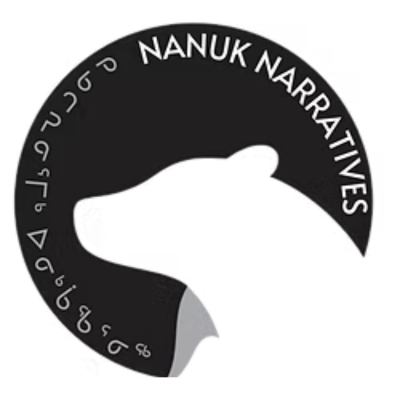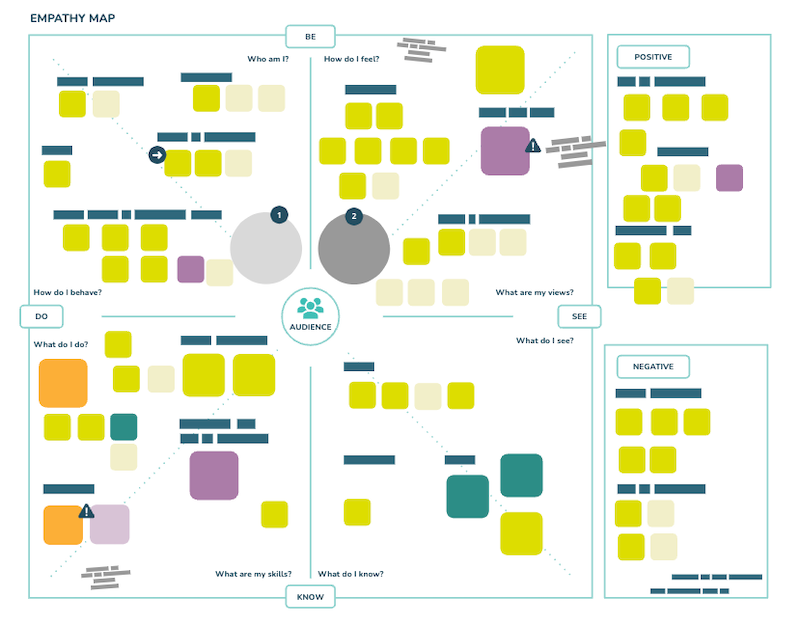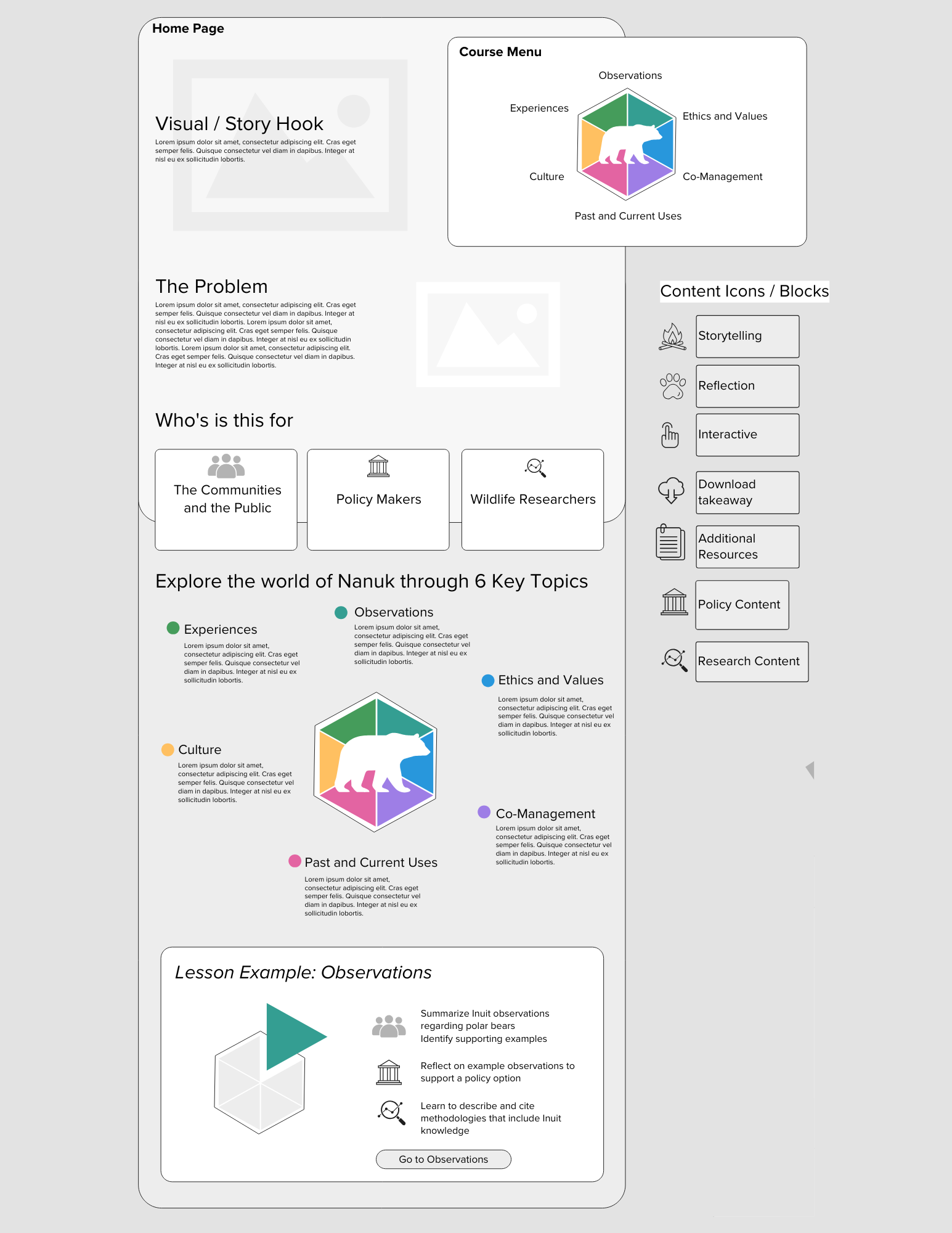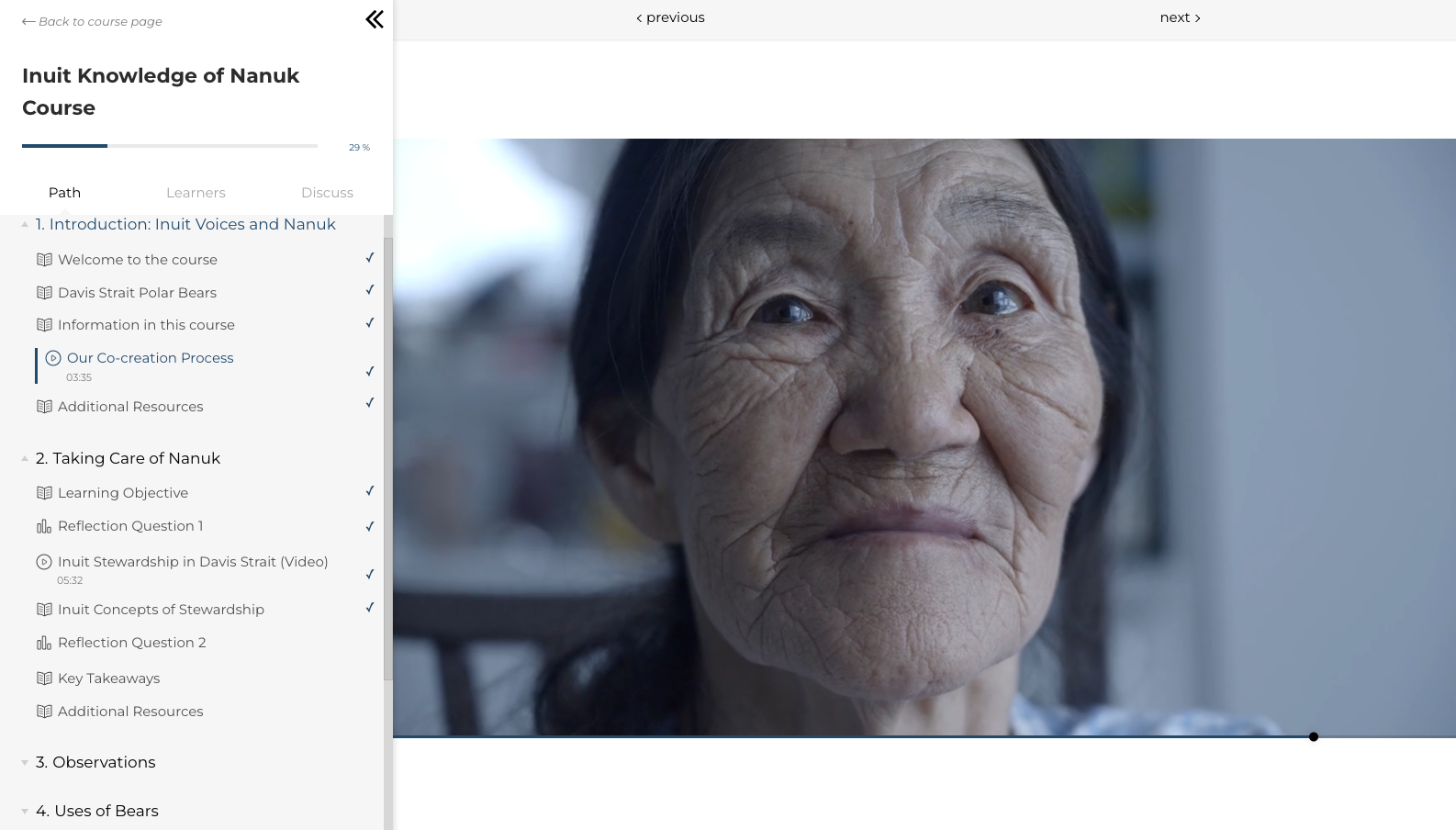CASE STUDY
Nanuk Narratives
5 minute read
5 minute read
The Nanuk Narratives team tapped Onlea’s learning development strategy and UX research expertise to make Inuit knowledge of polar bears accessible to policymakers and champion effective co‑management practices.


Connecting policymakers to Inuit Knowledge for effective wildlife co-management.

About Nanuk Narratives
Nanuk Narratives is an initiative to share knowledge about polar bears (nanuk) from an Inuit perspective, and show how local Indigenous voices are not just valuable but essential to wildlife management and conservation efforts in the Arctic.
The initiative is a collaboration among the Torngat Wildlife, Plants and Fisheries Secretariat; the Nunavik Marine Region Wildlife Board; the Nunavut Wildlife Management Board, the Anguvigaq in Nunavik; and the Pangnirtung Hunters and Trappers Association.

The Challenge
Stewardship of a transboundary and culturally important species like the polar bear is complex, and Inuit Knowledge and participation are vital to the success of any policy and programs. However, outside researchers and decision-makers in bear management rarely have insight into the expertise of Inuit community members.
“The communication in the North… it’s very poor between ordinary people to the government. Our voice isn’t heard."
Iola Metuq, Inukjuak Nunavik
The Nanuk Narratives project emerged from grant-based research into wildlife co-management practices and involved filming and video interviews with people from diverse backgrounds and experiences, including Elders, Knowledge Keepers, hunters, and youth.
The Nanuk team wanted this collected knowledge to be more than raw material for an academic paper. They wanted it to be available to everyone, and to actively inform future policy for healthy and sustainable Inuit relationships with polar bears.
Inspired by the success of the Onlea-produced Indigenous Canada course, Nanuk coordinators reached out to Onlea for input on how the initiative could develop an impactful knowledge resource for decision-makers in wildlife management.
Onlea’s Nanuk Narrative contacts and collaborators for this consultation were Jamie Snook and David Borish of Cloudberry Connections and Monica Engel of the Torngat Wildlife Plants and Fisheries Secretariat.

Our Solution
Over the summer and fall of 2024, Onlea worked with the Nanuk team to plan development of an online course to support and expand on the series of short, documentary-style videos the project had produced.
Since the Nanuk Narratives research team already had members knowledgeable in the subject matter, media production, and fundamental adult education principles, Onlea’s consultation was focused on learning development strategy:
- Creating a detailed understanding of the audience,
- Identifying methods to engage and support them,
- Highlighting sources of risk for multimedia learning projects,
- Recommending ways to mitigate those risks, and
- Validating the approach with audience focus groups.
Onlea’s contributions were led by Andrea Hasenbank, a seasoned learning strategy and eLearning designer with a background in policy development research, with UX architecture support from William Fritzberg and project management from Abisoye Akinola.
The Onlea team reviewed the media and resources created as part of the Nanuk Narratives project, including early versions of learning materials like online webinars and classroom activities, and worked closely with Jamie, David, and Monica to better define the project audience and content focus.
Onlea led several workshops to explore the context of the learners, the policy environment, the regional context, and potential conceptual frameworks involving Traditional Ecological Knowledge.

Onlea delivered a set of module blueprints which the Nanuk team used as a guideline for organizing content into a prototype course website over the following weeks.
Since audience members were expected to explore the content in a non-linear fashion, Onlea also mapped out navigation and wayfinding support for this type of experience.


The Results
Test audience members were enthusiastic about the prototype experience, calling out the visual design, navigation, and videos in particular. Many were eager to see the finished result and requested they be alerted when it was ready for launch.
Participants also suggested areas Nanuk could expand the content to better emphasize the communities behind the project and what resources could be added to support them as decision-makers in their organizations.
The Nanuk team has been positive about deliverables and their experience working with Onlea.
The full version of the Inuit Knowledge of Nanuk course launched in December of 2024 as a free, open-access experience, and is expected to continue to grow and evolve with the needs of wildlife co-management practitioners and academics.
